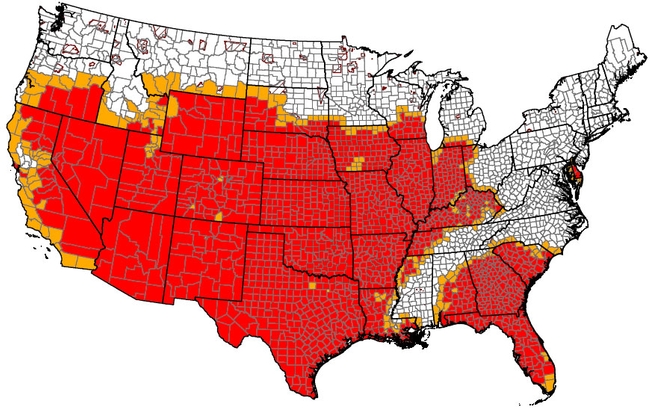Some farmers won't suffer due to drought
National Public Radio's Planet Money pointed out that many U.S. farmers who are losing their crops due to drought won't suffer financially because they have government-subsidized crop insurance.
U.S. taxpayers spend about $7 billion a year on crop insurance, the story said.
Daniel Sumner, director of the UC Agricultural Issues Center and professor in the Department of Agriculture and Resource Economics at UC Davis, said he isn't in favor of the government giving farmers subsidies.
Ski resorts suffered last winter when there wasn't a lot of snow. The government doesn't say, "Sorry you didn't have a lot of skiers. Here's a check," Sumner said.
Valley farmers wary of new water rules
Mark Grossi, The Fresno Bee
A UC study released in March says 96 percent of the Central Valley's groundwater contamination problem comes from agriculture, and it threatens the drinking water of 250,000 valley residents. The study suggests better monitoring and management of fertilizers are needed to ease the problem. By using only the amount of fertilizer needed by plants, the nitrates would be controlled. Leaders of water-user groups say farmers already aim for that goal and have become far more efficient. Yet, the state assumes all farmers are discharging to the groundwater, said David Orth, general manager of the Kings River Conservation District and coordinator of a coalition representing farmers in the four-county area. "In other words, everybody is guilty until they prove themselves to be innocent," he said.
Experts: Rinds one reason for salmonella-infected cantaloupe
Scott Kanowsky, WBEZ 91.5
Cantaloupe rinds could be one reason behind a recent salmonella outbreak linked to the fruit. "It's much easier to scrub the surface of a honeydew melon than it is to scrub the surface of a cantaloupe and actually remove microorganisms that are on the surface,” said Linda Harris, UC Cooperative Extension specialist in the Department of Food Science and Technology at UC Davis.

